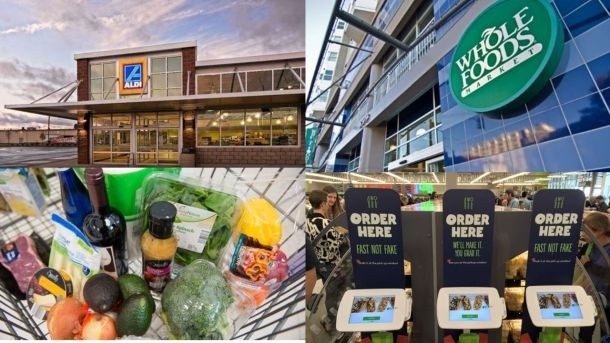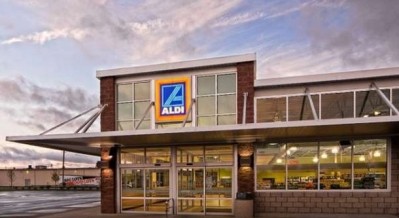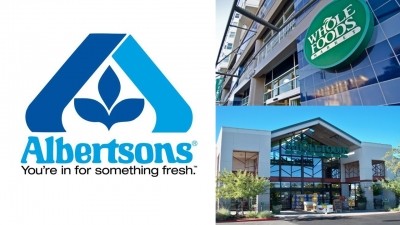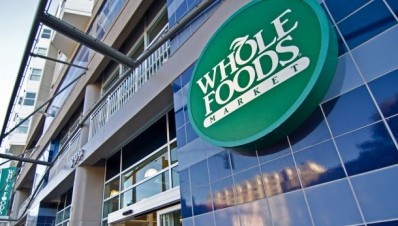ALDI unveils $1.6bn store remodel plan; Whole Foods axes 1,200+ store goal

In a statement issued yesterday, ALDI USA was bullish about its prospects in the US market, while Whole Foods' CEO John Mackey acknowledged that rivals had muscled in on Whole Foods' territory and that it planned to respond with a more data-driven approach aimed at encouraging its biggest spenders to spend a little more.
Speaking to analysts after posting a 2.4% decline in same store sales in Q1, CEO John Mackey said he was closing nine under-performing stores, and was reappraising the long-standing goal of growing to 1,200+ stores (it currently has 469): “We don't want to compete in a race to the bottom as consumers have ever-increasing choices for how much and where they shop.
“We will continue to grow, but no longer have a goal of 1,200-plus stores," he said. "We remain optimistic about the future growth potential for our 365 format but want to see how this next round of stores perform before getting more aggressive.”
Disciplined growth
He added: “This does not mean we're stopping growth [he cited 80+ new stores in the pipeline]… We’re going to continue to grow, but we're going to be, I think, a more disciplined growth company than we've been in the past."
Going forward, the focus will be on getting core customers, the chain's "largest customer segment [which] account [s] for a majority of our sales” – to spend more, said Mackey, who has struck a deal with dunnhumby to boost the chain’s data-driven, category management capabilities.
“If these customers add just one more item per trip, the sales potential is significantly greater than with any other segment. Going forward, Whole Foods Market will focus on serving this growing niche of customers better than ever before.”
Store labor costs: When we do self-service pizza, sales go up
Whole Foods has also learned that it can save money and boost sales by offering more self-service options in prepared foods, he revealed: “We found when we go to self-service [with hot pizza], that sales go up meaningfully.
"I mean, in many cases the sales go up 100%. And that is true in bakery, it's partially true in meat and seafood, so we're just sort of thinking through our business model and doing lots of experiments in terms of where we can reduce labor costs that do not affect or negatively impact the customer.”
He added: “We're basically examining every aspect of our retail operations and asking what are we doing here that's not creating value?”
ALDI: More stores, more fresh food, more customers
The new look ALDI stores, meanwhile, will offer a more “modern and convenient shopping experience with a focus on fresh items, including more robust produce, dairy and bakery sections,” said the company yesterday.
“We’re continuing to expand our fresh offerings, which means we need to provide more space for produce, meat, and bakery items,” added CEO Jason Hart, who said ALDI now serves 40m + customers each month, a nearly 60% increase since 2013.
“Our unmatched combination of exceptional quality and everyday low prices is why we’re one of the fastest growing retailers in the US.”
By the end of 2018, ALDI - which currently operates nearly 1,600 stores in 35 states - expects to operate nearly 2,000 stores, reaching more than 45 million customers each month, he said.
ALDI's business model
Described by Hartman Group as probably “the most underestimated grocery retailer” in the US, ALDI’s strength comes from its high-quality, but limited assortment (around 1,400 SKUs vs the typical 30,000+ in a regular supermarket), of primarily private label products at low prices – made possible in part because of its low overheads and no frills approach to food retail.
For example, at ALDI there are no counter service departments as everything is packaged and self-service (you bag your own groceries). As product is wheeled in on pallets by forklift, shelf stackers are not needed. Carts require a 25c deposit, so shoppers return them (so staff don’t have to); there are no baskets to manage; opening hours are slightly more limited than rivals (typically 9am to 9pm); and stores only accept cash, debit and EBT cards.
The only staff at ALDI – which entered the US market in 1976 - are forklift operators, a cashier or two and possibly a third-party loss-prevention agent, notes Hartman Group, which also noted that “ordinary middle-class Americans,” shop there. “The ALDI proposition is not one that uniquely orients to struggling, down-market consumers. In fact, its primary shopper base looks virtually identical to Walmart’s.”
It is also beginning to appeal to midmarket and upmarket consumers, developing a proprietary LivGfree gluten-free range and a natural and organic range called SimplyNature, introducing healthier checklanes (replacing candy with nuts, trail mixes, dried fruits and granola bars), formulation changes ( no MSG, synthetic colors, and partially hydrogenated oils from private label lines), and more fresh produce.
It has also begun to selectively add in national brands in specific categories, presumably where it has been unable or unwilling to invest in a private label equivalent.
Privately held by brothers Theo and Karl Albrecht, ALDI Group (which also owns Trader Joe’s) is Germany's leading grocery store chain and a leading player in the global retail food industry.









